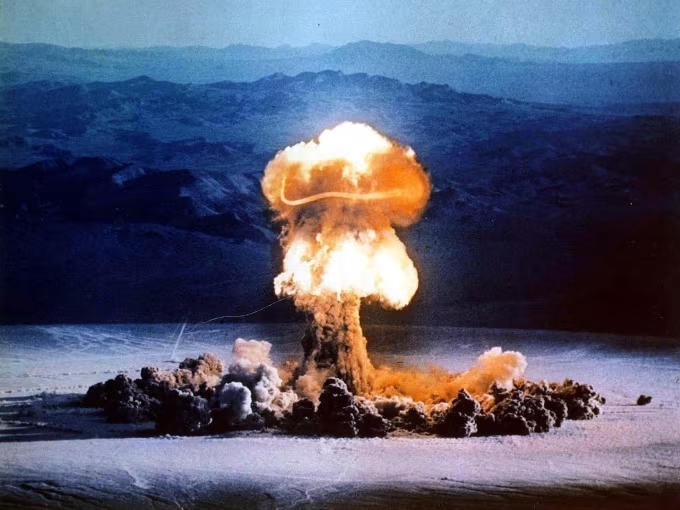Just in time for Halloween, a shadow reminiscent of the Cold War seems to be creeping back onto the global stage. Former President Donald Trump’s recent announcement on Truth Social about restarting U.S. nuclear weapons tests has reignited discussions about the balance of power among the world’s nuclear states.
Trump’s post, released after Russian President Vladimir Putin touted his country’s testing of a nuclear-powered torpedo and a new cruise missile, stated: “Because of other countries testing programs, I have instructed the Department of War to start testing our Nuclear Weapons on an equal basis. That process will begin immediately.”
The announcement has left nuclear experts and watchdogs puzzled, questioning both the feasibility and intent behind Trump’s statement. Harvard nuclear weapons expert Matthew Bunn was blunt: “First of all, every statement in that post is wrong. The U.S. does not conduct nuclear tests through the Department of Defense. That’s the Department of Energy. And no other nuclear states are currently conducting explosive tests.”
Even Trump’s nominee for U.S. Strategic Command seemed uncertain during his Senate confirmation hearing. Navy Vice Adm. Richard Correll said, “Neither China nor Russia has conducted a nuclear explosive test, so I’m not reading anything into it or reading anything out.”
Experts clarify that Russia’s recent missile and torpedo demonstrations do not qualify as nuclear tests, which are “generally controlled explosions of nuclear devices such as bombs or warheads,” according to the Center for Arms Control and Non-Proliferation.
Jon Wolfsthal, a former advisor to both President Biden and President Obama on nuclear matters, noted that while the U.S., Russia, and China are investing heavily in new nuclear delivery platforms like missiles, bombers, and submarines, actual nuclear explosive testing has largely ceased. “We have returned to the arms race dynamics of the Cold War where each side believes nuclear weapons are important,” he said.
Resuming nuclear testing in the U.S., however, would not be a simple undertaking. Almost every nuclear-capable nation has voluntarily refrained from testing for decades: Russia last tested in 1990, the U.S. in 1992, and China in 1996. North Korea is the only country to conduct nuclear blasts this century, a move that has left it internationally isolated.
Technical hurdles further complicate matters. Federal studies suggest that staging a nuclear test safely would take years of preparation and might provide limited new information, as the U.S. already maintains extensive knowledge of nuclear weapons components.
Critics warn that restarting nuclear tests could inadvertently benefit China by giving other nations a pretext to accelerate their nuclear programs. “The country that would benefit the most would be China,” Bunn said. Former Congressman John Tierney, now head of the Center for Arms Control and Non-Proliferation, echoed this concern: “It makes no sense from a strategic point of view for the United States.”
Political analysts speculate that Trump may be using aggressive rhetoric as leverage, hoping to pressure Russia and China into nuclear negotiations. The former president has said, “I’d like to see a denuclearization. We’re actually talking to Russia about that, and China would be added if we do something.”
Neither the Defense Department nor the White House has offered further clarification on the plan. Tierney, however, worries that the unpredictable nature of Trump’s statements injects instability into an already tense global environment. “One day he wants everyone to get rid of their nukes. The next day he wants to start testing. It’s dangerous,” he said.
As global tensions simmer, Trump’s statements serve as a reminder that the specter of nuclear competition continues to cast a long shadow over international relations — one that could have serious consequences if not carefully managed.

